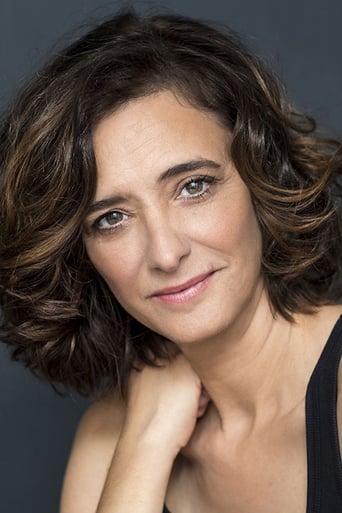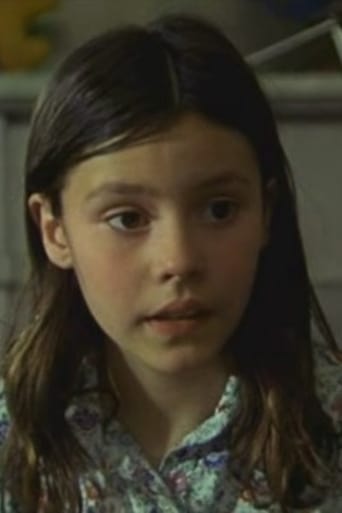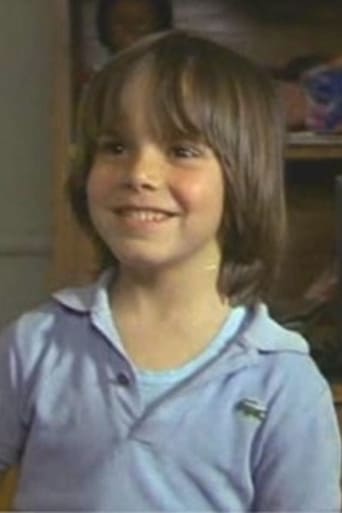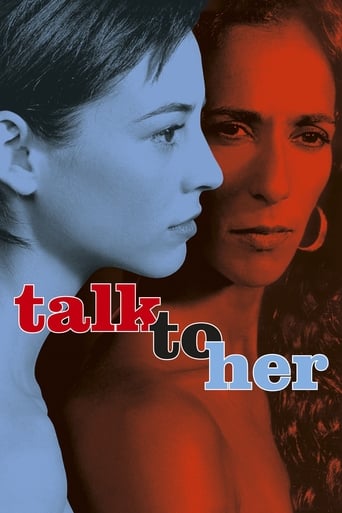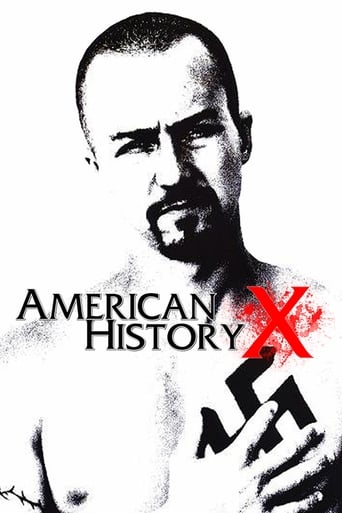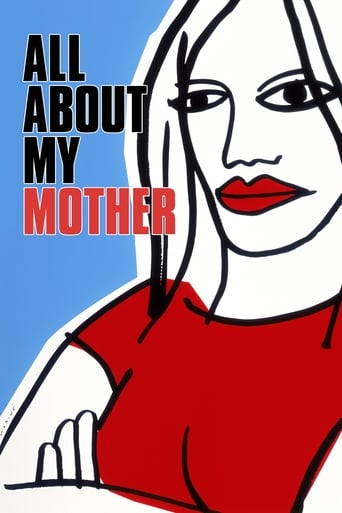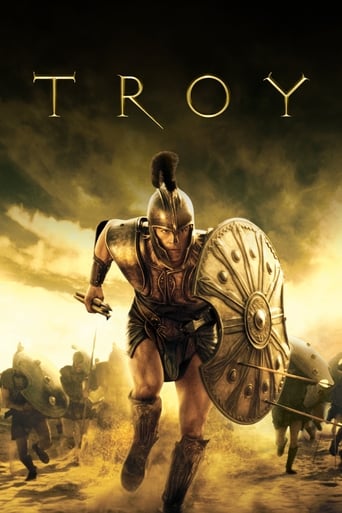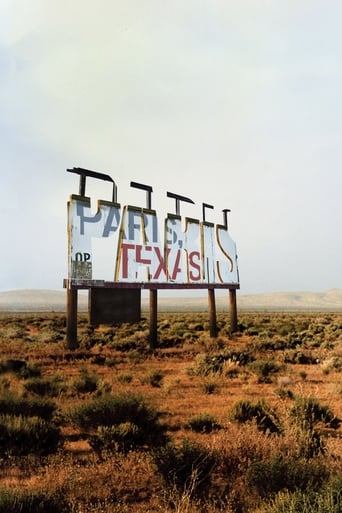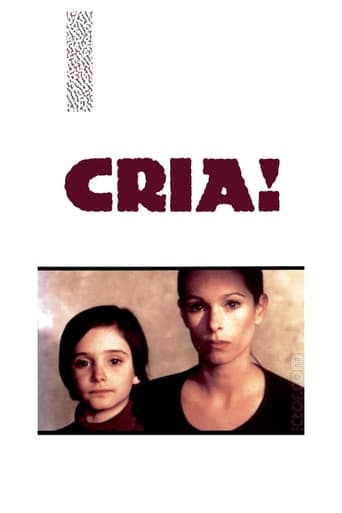
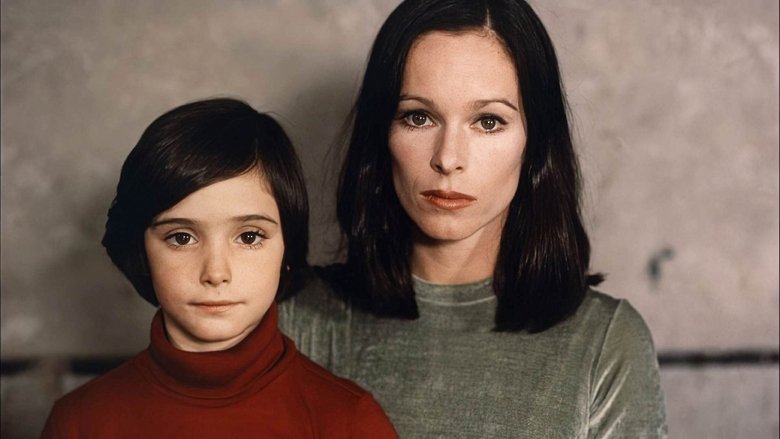
Cria! (1976)
Ana, an eight-year-old girl living in Madrid with her grandmother and two sisters, mourns the death of her mother.
Watch Trailer
Cast
Similar titles
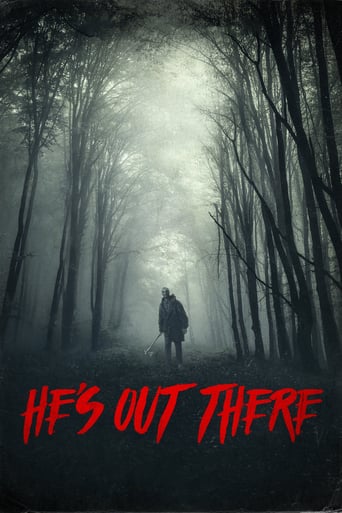

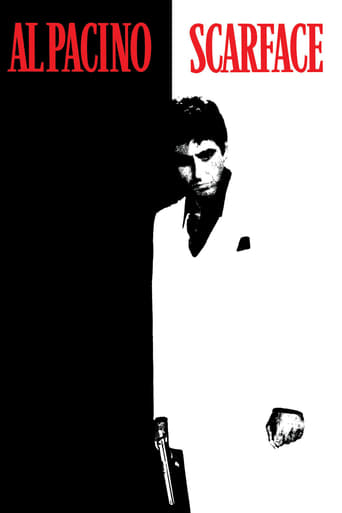
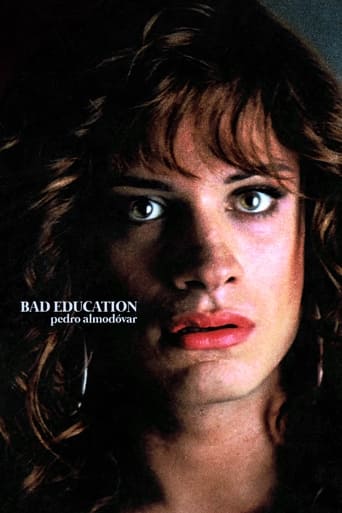
Reviews
everything you have heard about this movie is true.
Although I seem to have had higher expectations than I thought, the movie is super entertaining.
A terrific literary drama and character piece that shows how the process of creating art can be seen differently by those doing it and those looking at it from the outside.
Through painfully honest and emotional moments, the movie becomes irresistibly relatable
As yet unavailable on DVD in the UK, this brilliant Spanish classic is now back on the big screen in a beautifully restored print. Thirty five years after it was made, Cria Cuervos is (by and large) just as potent and relevant as it was when first released.There is a scene, quite early on in the film, where a young girl called Ana, and her two sisters, walk into their aunt's bedroom and start playing with her makeup and wardrobe, rouging their cheeks and applying lipstick in copious amounts. I think, at that point, almost everyone in the screening, tried to hide a sardonic smile.However, it is not for its ironies when seen in the present day that we remember this film most. We remember it because it offers us something we very rarely see in cinema: an honest, sincere evocation of childhood and the gradual, warped loss of innocence. That is the premise of dozens of films, I realise, but seldom is anything like this achieved; movies of this type are either cloying and sentimental, or else sensationalised and melodramatic. Neither obtains the poignant sense of disquiet that 'Cria Cuervos' generates.The film begins with Ana losing her father. Her mother, we quickly learn, died a few years ago, and Ana is left an orphan. She and her two sisters are sent to live with their aunt – a fundamentally kind, but authoritarian guardian who Ana, yearning for her own mother, instinctively rebels against. We follow Ana's story from the time of her father's death to the end of the summer holidays, after which she will start school with her sisters.This, I hasten to add, is a very simplified, desiccated overview of the plot. It is a film packed with nuance and subtlety. We learn that Ana's father was in fact a soldier under Franco's regime, and had at one time fought alongside the Nazis. In one of the most memorable scenes in the film, Ana finds her father's gun, still loaded, leading to a tense scene with her aunt and her aunt's lover.Ana is a fascinating child. The eagle eyed film buff might remember the actress who plays her from 'The Spirit of the Beehive', another Spanish classic which deals with similar themes, albeit in a different way. Most striking are those large, brown eyes of hers; Ana is a quiet, observant child, disturbed by her brief glimpses into the adult world, gradually accumulating as she grows older. How much does she understand? Obviously, when Ana grows into an adult and narrates the story through flashback, hindsight will let her comprehend the things she has seen. But what of when she is younger? The answer is largely subjective. The film draws many comparisons between Ana's grandmother and the young Ana herself – the old woman is paralysed, in a wheelchair. She is capable of hearing and seeing – and understanding the things other people say. But she never says anything. Whether this is part of her affliction, or a conscious choice, is left deliberately ambiguous. What we can see is that Ana sympathises with her grandmother, and a gentle, compassionate relationship evolves between the two.I could go on. Perhaps the most impressive thing about the film is the way it seamlessly blends fact, fiction and memory so beautifully and precisely, without ever losing sight of its ultimate goal; indeed, this very blending lends the film an incredible authenticity. Ana feels isolated and alone – her fantasies, from the shocking to the seemingly banal, are desperate and painful. The opening montage, as well, of a collection of family photographs, is extremely subtle and masterful in the way it has us beginning to formulate questions and suspicions – some of which are assuaged, some of which aren't.What a treat this is for any film fan! Carlos Saura (the director), was of course one of the great opponents of the Franco regime, while also rated as one of the most important Spanish directors of the 1970s. This is probably his most well known and powerful film. Childhood can be a frightening, confusing, and sad time, and Saura, with what is arguably his masterpiece, has captured that beautifully. Don't miss!
With this and "Spirit of the Beehive", Ana Torrent is the poster child for childhood in cinema. Not as compelling as "...Beehive", but infinitely fascinating in it's own right, "Cria Cuervos" explores a sad and lonely childhood landscape. One of death and oppression, which leaves many deep scars and a little hope. Depending on how much you know about Franco and Spain, you'll see come political undertones, particularly with scenes of oppression within this disintegrating family. I recognized the stuff but I'm not familiar enough with that era to pinpoint who, what why. It seemed fairly general though and beside the point in a lot of ways.Torrent plays Ana, a middle child. Her mother has recently died of a long drawn out unexplained illness, and now - apparently - under her own hand, for she blames him for her mother's death, her father passes, leaving the girls in the charge of a strict, uppity but well meaning aunt. Ana is obsessed with death, sees it as a way to get rid of people she doesn't want around, and also to help. But as most children of about 8 she does not fully understand the qualities of it.Through memories and fantasies, the mother played by Geraldine Chaplin - director Carlos Saura's muse - and the father return, acting out the missing pieces of this family. Some of it is a bit melodramatic and tired, and when the movie shifts away from the children - which does not happen often and usually briefly - it is far less engaging.The film has an ethereal eroticism and sensuality to it. The mother is very flirtatious in the way she asks Ana for kisses. And in particular the dance scene between the sisters holds this disturbing but natural desire to become adults in the way the girls dance together. To hate yet desire growing up.
This gorgeous film can work as something of a companion piece to the sublime 1973 Spanish film Spirit of the Beehive, also starring wide-eyed girl-wonder Ana Torrent. It tells the tale of a a group of three young girls whose parents both die in separate incidents. They are put into the care of their Aunt, who doesn't want them to dwell upon their tragic experiences. The story is told through the perspective of Ana, an imaginative (and rather morbid) girl who tries to understand the complicated adult world and the authority figures that surround her. She believes that she murdered her father with poison, and that her mother visits her in the night. The film doesn't really have any other narrative--it's more of a glimpse into the life of a young girl's summer after experiencing tragedy. Due to this unconventional structure, it can be a bit slow and frustrating at times, but if you stick with it, you might find it to be a rewarding viewing. It's an exceptionally beautiful film, and like Spirit before it, it is never condescending to its lead character. The film is also a fascinating socio-political commentary on post-Franco Spain, and is rich with symbolism and metaphor, much of which I probably didn't catch upon first viewing. However, if you don't have a working knowledge of Spanish history, the film does a fine job as a family drama.
A perfect sister film to one of my absolute favorites, Spirit of the Beehive. It also stars Ana Torrent and has similar themes. And I like it probably as much. Torrent, three years older but looking pretty much the same, plays the middle child of three girls. At the beginning of the film, their father has just died. Their mother (played by Geraldine Chaplin) died a while back. The film is told through the mind of Ana, who is still mourning her mother, and she often sees her. It can be confusing at the beginning. Chaplin also appears as the adult Ana, who narrates some of her thoughts, or possibly as what Ana believes she will become. This is very ambiguous. The girls' aunt Paulina is now taking care of them. The duty was kind of forced upon her and, while she's trying her hardest, it's taking its toll. She's stern and not well liked by the girls, especially Ana. There isn't much plot, per se, and what little there is shouldn't be ruined. We often see Ana's imagination and memories come to life. We see her witness fights between her parents. Later on, she reenacts them with her sisters. The film is about what children observe, how they interpret it and how they act on those interpretations. The film also has political ramifications, subtle ones that are pretty difficult to grasp. The title is the beginning of a Spanish proverb that goes: "Raise ravens, and they'll tear out your eyes." Like Spirit of the Beehive, the film depicts a child experimenting with her own cruelty and violence. Supposedly this is all a criticism of the Fascist government (Franco had just died by this point, so his regime was just on its way out). It's a very dense and fascinating movie. You'd probably still be swimming through its mysteries on a hundredth viewing. If you thought possibly that Ana Torrent was not acting in Spirit of the Beehive, this will set you straight. Her blank, soulful expression is here in full force, of course, but here you see the slightest smile creep across her face, and you can just tell exactly what she's thinking. I'm afraid I've done an awful job reviewing Cría Cuervos. I haven't expressed how touching it is when dealing with Ana's loneliness (there's a scene where she dreams that her mother pops into her bedroom to tell her a story that's just heartbreaking), or how it often straddles dark comedy, like the scenes between Ana and the maid. I think that difficulty in reviewing it shows just how layered and confounding the film is. It shoots right up my favorites list. It's easily the best film I've seen all year. Bravo to Criterion for bringing this one to DVD. Hope they also get to Saura's La Caza sometime in the future.
